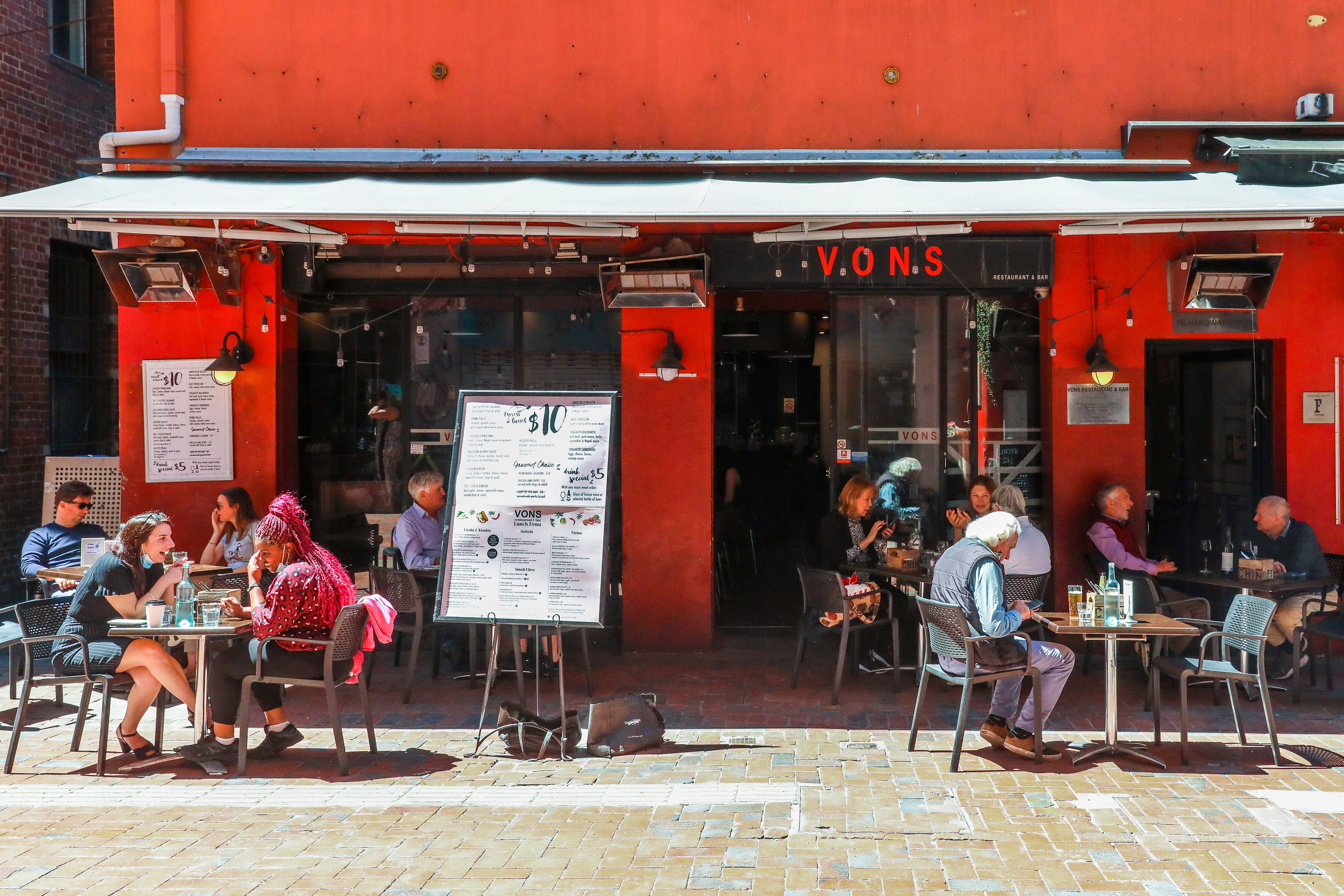Australia's second-largest city ends 111-day virus lockdown
Coffee business owner Darren Silverman pulled his van over and wept when he heard on his radio that Melbourne’s pandemic lockdown would soon be largely lifted after 111 days

Your support helps us to tell the story
From reproductive rights to climate change to Big Tech, The Independent is on the ground when the story is developing. Whether it's investigating the financials of Elon Musk's pro-Trump PAC or producing our latest documentary, 'The A Word', which shines a light on the American women fighting for reproductive rights, we know how important it is to parse out the facts from the messaging.
At such a critical moment in US history, we need reporters on the ground. Your donation allows us to keep sending journalists to speak to both sides of the story.
The Independent is trusted by Americans across the entire political spectrum. And unlike many other quality news outlets, we choose not to lock Americans out of our reporting and analysis with paywalls. We believe quality journalism should be available to everyone, paid for by those who can afford it.
Your support makes all the difference.Coffee business owner Darren Silverman pulled his van over and wept when he heard on the radio that Melbourne’s pandemic lockdown would be largely lifted on Wednesday after 111 days.
Silverman was making a home delivery Monday when the announcement was made that restrictions in Australia’s second-largest city would be relaxed. He was overwhelmed with emotions and a sense of relief.
"The difficulty over the journey, when you’ve put 30 years of your life into something that’s suddenly taken away with the prospect of not returning through no fault of your own — I felt like I could be forgiven for pulling over and having a bit of a sob to myself,” he said.
According to the Victoria state government the lockdown changes will allow 6,200 retail stores, 5,800 cafés and restaurants, 1,000 beauty salons and 800 pubs to reopen, impacting 180,000 jobs.
Crowds on the city's streets — where mask wearing remains compulsory — were still thin Wednesday since Melbourne residents are still restricted to traveling no more than 25 kilometers (16 miles) from home and most of the city’s office blocks remain empty as work-from-home orders continue.
And while there were pedestrians on the downtown Bourke Street Mall, it was also clear from the number of now empty shops that many retail outlets and eateries did not survive the lockdown, the city's second since the pandemic began.
But many that are left are reporting record demand from the city's pandemic weary residents, with some restaurants already fully booked a month in advance now that they are no longer restricted to takeout.
“People are anxious to get out, to be able to sit outside at a table and have a cup of a coffee or something to eat,” café owner Maria Iatrou said. “People are really enjoying it and it’s going to be a bit of a crush for the next few weeks while people get that out of their system."
The lockdown had been particularly tough on those in Melbourne because the rest of Australia beyond Victoria successfully contained second waves of infections without increasing restrictions. Victoria Premier Daniel Andrews faced enormous pressure from businesses and the federal government to reopen for the sake of the economy.
Andrews resisted until Monday, when he announced the relaxation hours after the state recorded no new infections in the latest 24-hour period. It was the first time Melbourne had gone a day without a new infection since June 9 and the milestone was celebrated on social media as Donut Day.
Tuesday was another Donut Day, Melbourne's first consecutives days with no new infections since March 5 and 6. Two new cases were reported on Wednesday, but they were infected by known cases and were already in isolation.
Andrews thanked the retail and hospitality industries for working with his government to safely reopen.
“They know and understand deep down that we’ve all got to be COVID-safe, we’ve all got to follow the rules to protect staff, to protect customers, but also to protect this fragile thing that we’ve all built,” Andrews said, referring to containment of the virus.
Iatrou said the lockdown was difficult both professionally and personally. Her café struggled through by selling takeout and delivery. Even worse, she lost her uncle and godmother to COVID-19 and could not attend their funerals because of pandemic restrictions.
They were in aged care, where most of Victoria’s 819 coronavirus deaths have been recorded. Only 88 people have died of COVID-19 elsewhere in Australia.
“Unless you were here, it’s difficult to understand what kind of a toll it does have on you,” Iatrou said of the lockdown. “It’s a strain to get through most days.”
Mary Poulakis said she's thrilled to have reopened the upscale clothing boutique she's owned for 35 years in suburban Coburg. She also said there's no way she would obey a third lockdown.
“It’s been tumultuous. It’s been like a roller coaster. You’re up, you’re down. You’re open, you’re closed. You’re on, you’re off,” Poulakis said.
“I’m staying open. I cannot close my doors again,“ she added.
Silverman, the coffee business owner, said he was pleased to be open again not just for business reasons, but for the mental well-being of staff, some of whom had been isolating alone at home for months.
His business has been able to sell wholesale coffee to cafes and online, but he says his downtown café though now open will struggle until office workers return.
“We’re told that that stay-at-home order in terms of office workers will probably be in place for the foreseeable future, certainly into the New Year, which is going to make life in the C.B.D. for retailers and hospitality very, very difficult,” he said, referring to Melbourne’s central business district.
___
McGuirk reported from Canberra, Australia